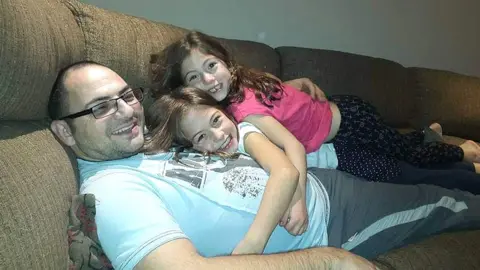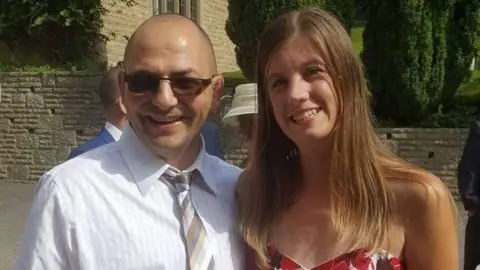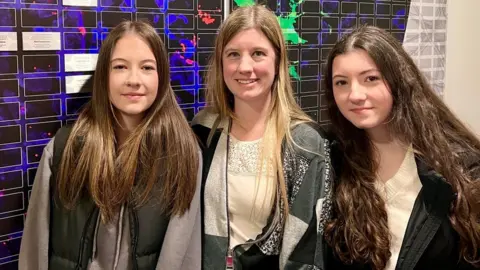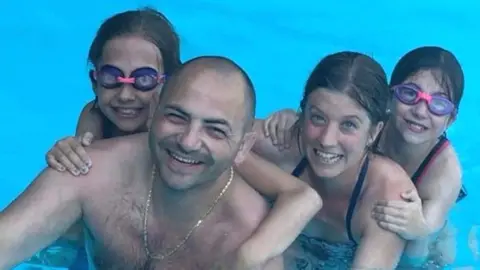Brain tumour victim's daughters raise funds for medical research
 Family photo
Family photoThe family of a man who died of brain cancer have raised enough money for two days of research into the disease.
Neil Lanciano, from Gloucestershire, died despite surgery to remove a tumour that was discovered after he suspected he had suffered a stroke.
His wife Hayley and daughters Abbie and Emily have now raised more than £5,000 for the charity Brain Tumour Research (BTR).
Mrs Lanciano said she was "beyond proud" of her girls.
"Since losing their dad, both girls have taken an interest in science. Abbie is doing triple science at school and I think seeing what Neil went through has encouraged this," she said.
Abbie, 15, did a 12-hour sponsored walk in February 2021, while her father was still battling the tumour, during which she raised the cash.
 Family photo
Family photoIn recognition of her fundraising she and Emily, 14, were invited to the Centre of Excellence at Queen Mary University London, on 8 February.
They were given a tour of the centre's labs, where a day of research costs £2,740, led by principal investigator Prof Silvia Marin.
Scan revealed tumour
Mr Lanciano, 46, first knew something was wrong when he lost mobility in his hands in April 2020 - but he was initially treated for carpel tunnel syndrome.
The paint shop supervisor then suspected he had suffered a stroke at work and was taken to the Gloucestershire Royal Hospital where a scan revealed the tumour.
Mr Lanciano, from Innsworth, then had surgery to remove the growth, which was diagnosed as an aggressive glioblastoma.
 Brain Tumour Research
Brain Tumour ResearchBut to the family's disbelief, it grew back quickly, Mrs Lanciano said.
"Six weeks after the operation it returned just as big as when it was first discovered," she said.
"He may as well as not had the invasive surgery, especially as his mobility and speech suffered because of it."
Despite courses of radiotherapy and chemotherapy, Mr Lanciano died last November.
Mel Tiley, community development manager at BTR, said: "We are grateful to Hayley, Abbie and Emily for their support.
"Neil's story reminds us that brain tumours are indiscriminate and can affect anyone at any age, and that one person in three knows someone affected by brain tumours.
"We cannot allow this desperate situation to continue."
 Family photo
Family photo
